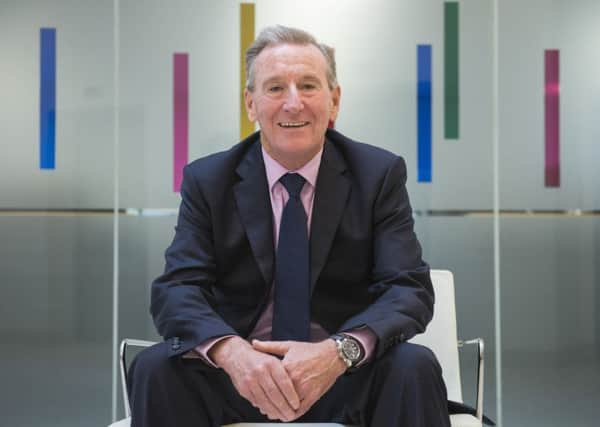Monday interview: Assure APM chief executive Doug More
This article contains affiliate links. We may earn a small commission on items purchased through this article, but that does not affect our editorial judgement.


Doug More thought he had chosen the right moment to retire, but after about four years found he wasn’t quite ready to give up the world of business just yet.
“I got fed up playing golf, so I decided to get stuck in doing something a bit more interesting,” says the chief executive of Assure APM, which enables IT professionals to pre-empt potential problems and is looking to expand by up to ten times over the next three years.
Advertisement
Hide AdAdvertisement
Hide Ad“I’m not a very good golfer but I’m quite good at this,” he says, referring to the Edinburgh-based tech firm that he founded in 2014, and was spun out from IT and telecoms consultancy FarrPoint to be a service-delivery business.
The venture was originally called FarrPoint Assure, and it was then decided “that the best thing to do strategically would be at some point split and rebrand”.
This involved relaunching last year in partnership with global technology partner Riverbed and international IT distributor Zycko, changing its name to Assure APM, which stands for advanced performance management.
Additionally, his wish for people to simply refer to the firm as Assure rather than the full name has been realised, “so it’s all worked very well”.
The rebranding coincided with a pivotal point for the company regarding work with Baillie Gifford, and it won a “substantial” contract with the fund-manager that was looking to improve visibility and control of its IT systems.
More says this work taught Assure a great deal, and enabled it to proceed “with some track record behind us”. It has also worked with organisations including Angus Council, and Barchester Healthcare, which has more than 200 care homes across the UK and had been battling the intermittent slowdown of one of its business applications. “We solved a very interesting problem for them that had been simmering for seven years — and we did that in two weeks.”
He jokes that having been in the industry “since the beginning of time” or at least almost before computers, “there’s always a breakdown between non-IT people and IT people in nearly every organisation I’ve worked with”.
Advertisement
Hide AdAdvertisement
Hide AdHe says such a problem covers the likes of communication, trust and language. “It doesn’t always manifest itself as something completely negative but it’s underlying — it’s simmering underneath so when anything goes wrong with an IT system, immediately the blame fingers start getting pointed.”
This is not productive at all, he believes, and an organisation instead needs to collaborate. “I think that’s what this technology allows us to do. It delivers transparency into an organisation and clarity as to where problems in the IT systems are and how they can be resolved,” he says.
The public sector comprises most of its clients at present, but it is targeting private firms. “If productivity and efficiencies and so on are of ultimate importance, that’s where we sit best,” he says.
The business currently has 12 staff, and is forecasting turnover of £1 million in the year to end-March, with profit expected to grow about three-fold “when we get to the bigger picture”. There are plans to expand into England, and globally. “We will do international work — lots of it,” More says.
As for how his career started, he states: “I landed on my feet at Edinburgh University in a job I talked myself into, helping to develop one of the world’s first multi-access systems.” He later moved into management, and was involved in developing what he says were some of the first distributed computing environments.
He then moved to Case Communications to be a salesman, despite almost halving his basic salary to do so, but says he felt he could do sales “in a slightly different way” and was proved right.
His CV also includes driving the growth of Stiell Networks, now part of Alfred McAlpine and on leaving he thought it was the right time to retire. But while he believed at the time that keeping a hand in some business activity was enough, “once I got back in the saddle with Farrpoint and Farrpoint Assure I realised I’d been missing something”.
In terms of the future for Assure, the plan is to “get the message out” to potential clients. Regarding his own plans, he says: “I just don’t want to stop working for some reason or another. I think over the next three years we’ll get some traction that is going to begin to catapult us up the way.”
30-SECOND CV
Born: Edinburgh, 1950
Education: Leith Academy
First job: Computer officer
Ambition at school: To play professional sport
Advertisement
Hide AdAdvertisement
Hide AdWhat car do you drive? Subaru, and maroon Aston Martin (in my dreams)
Favourite mode of transport: Aircraft
Music: Rock, jazz, classical
Kindle or book? Book – The Wasp Factory
Reading material: Online news, The Week, science books, Hearts web site
Can’t live without: Love
What makes you angry? Racist behaviour, greed and selfishness
What inspires you? Philosophy and philanthropy
Favourite place: Edinburgh
Best thing about your job: Variety, people and pressure
